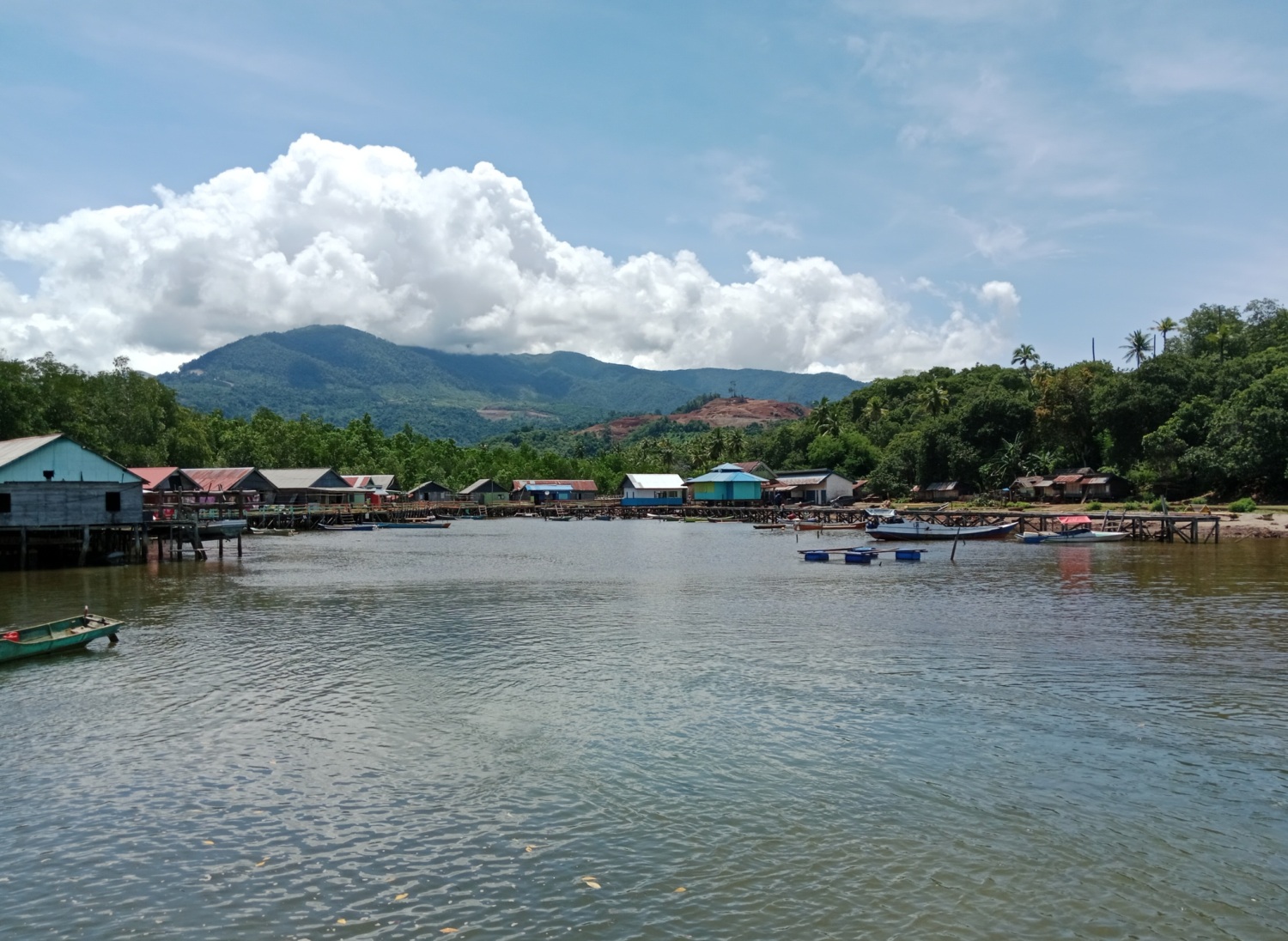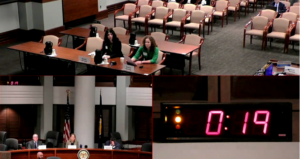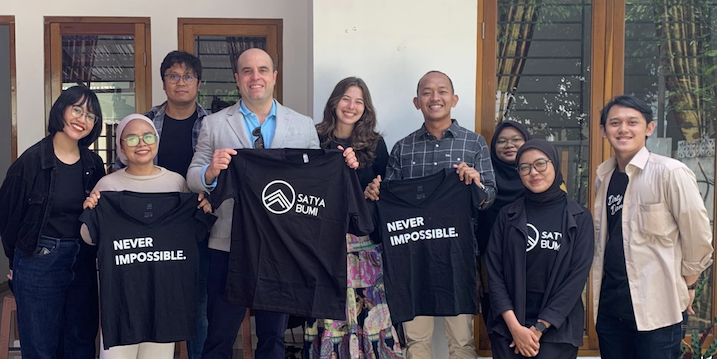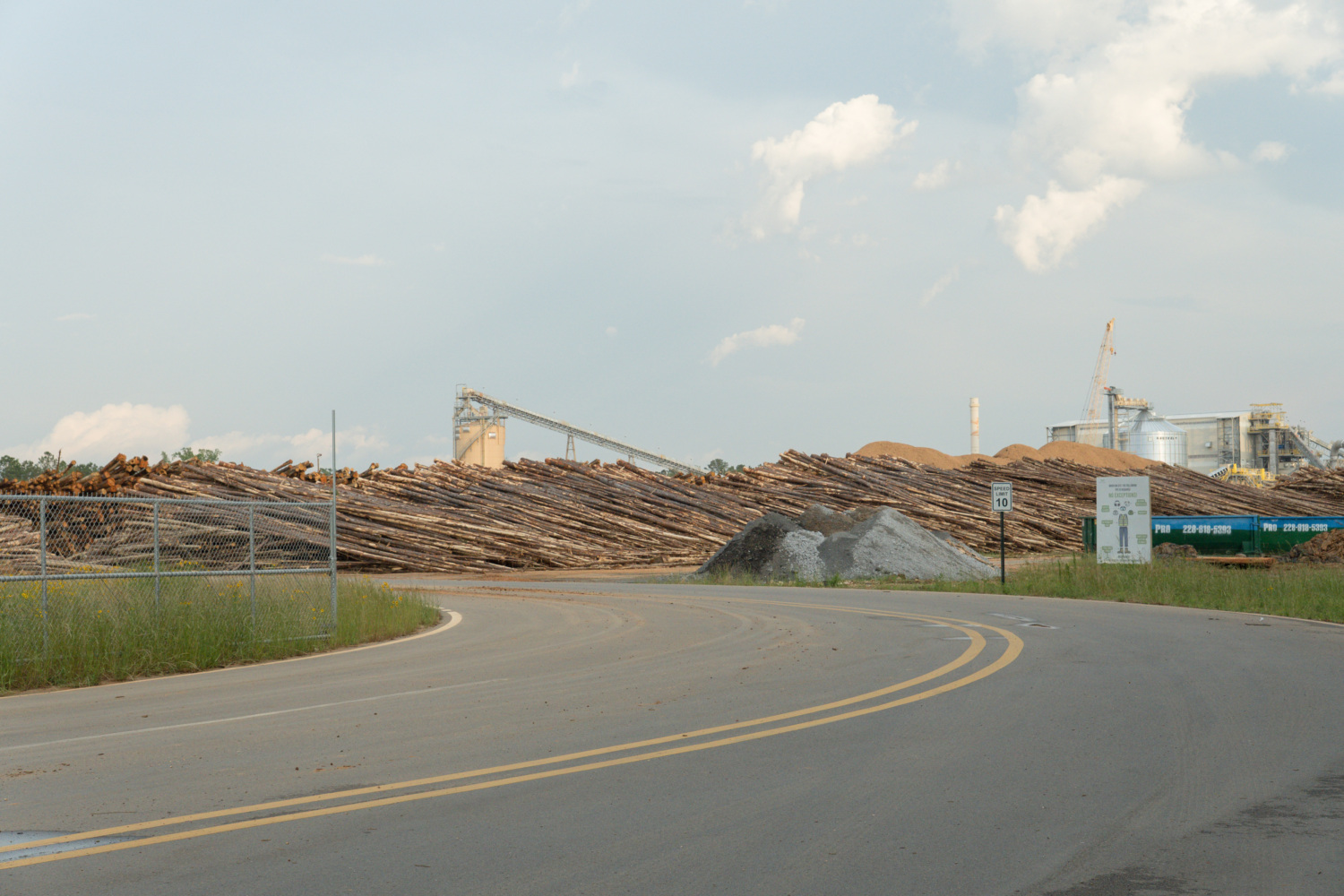
Testimony of Devastating Impacts of Nickel Mining on Kabaena Island
On May 3, 2023, Mighty Earth’s Senior Director of Forest Commodities Amanda Hurowitz testified before the United States Trade Representative about the impacts of nickel mining on the island of Kabaena. The testimony below shares the story of Kabaena’s people and environment.
 Photo of testimony given to the Office of the US Trade Representative, the Environmental Protection Agency, and the Department of Commerce.
Photo of testimony given to the Office of the US Trade Representative, the Environmental Protection Agency, and the Department of Commerce.
Kabaena, an island off the Southwest coast of Sulawesi, Indonesia, is home to the Bajau people. The Bajau are considered the world’s last “sea nomads” and live across the islands and waters of Southeast Asia and the Pacific. The Bajau are renowned free divers, who can stay below the surface of the water for up to 10 minutes on a single breath, foraging for sea cucumbers, seaweed, and other sea life. Their culture is based around the ocean, and some Bajau are born and spend their entire life at sea. In the case of the villages of Kabaena, they live on the shore or on stilted houses above the water and rely on the ocean for their sustenance and livelihoods.
In 2006, deposits of nickel were found on Kabaena. Now across the island there are 25 nickel mining concessions, 9 of them active. These concessions cause deforestation and significant impacts on the health and livelihoods of the Bajau.
Recently, researchers from the Indonesian NGOs, Satya Bumi and Walhi, surveyed the inhabitants of six villages. They photographed the very visible impacts of nickel mining on the Island – the deforested mountain sides; brown, cloudy water in the ocean near the villages; and houses flooded with the same brown, cloudy water.
The impact on the Bajau people, who rely on the sea for their livelihood, is profound. The contaminated water around the island means they can no longer farm seaweed and means they have to go much further offshore to reach fishing grounds, where yields are lower, pushing them further into debt. Even more tragic, the newly brown ocean waters have led to the drowning of three Bajau children in Baliara village in the last decade. These deaths were attributed to the lack of visibility, inhibiting their rescue, or because they weren’t taught to swim at an early age due to muddy water. In other Bajau communities where the water is still clear, children master diving by the age of three. The researchers also documented itchiness, festering wounds, and blistering skin conditions from the water. Two months ago, on March 26, in Baliara a major flood occurred after only half an hour of rainfall. Residents attributed the flooding to a nickel concession operated by Indonesia’s state-owned mining company.
In other villages, some Bajau reported taking mining or construction jobs because fishing was no longer an option. 71% of those surveyed reported impacts on their health, and 83% reported disruption to their livelihoods. 94% reported environmental damage.
Interviews found no meaningful consultation had taken place on the impacts of mining. Furthermore, the companies promised the people of Kabaena certain compensations, yet in reality, what they received was inadequate. Other findings included reports of mines illegally using a community port for its jetty, while other mines have been illegally clearing protected areas. Mighty Earth’s own data shows about 800 hectares of forest cleared without the necessary permits, making it illegal.
The human rights and health impacts in Kabaena are particularly severe for a culture so reliant on the water. As Indonesia invests more and more in nickel mining, these same health, environmental, and cultural impacts will undoubtedly affect many more people, something the government has not seriously assessed. Not only do the people of Kabaena deserve justice and clean water, but their situation is a stark reminder of the destruction that unregulated mining can cause to communities and ecosystems.
It clear that to meet our climate goals, we must transition to electric vehicles. EVs are more efficient than internal combustion engines, and they will be even better, as we green the grid.
Extraction is not the only answer to obtaining the materials needed to transition to EVs. To help lower the need for mining we should set ambitious recycling targets, and deploy smarter transportation planning.
But for those materials that must be extracted– and there will be more and more– the harms faced by those in Kabaena exemplify many of our concerns. Ultimately, wherever minerals are mined, the standards must be raised, and companies must clean up their supply chains. The Initiative for Responsible Mining Assurance, a standard with equal governance from the private sector, communities, civil society, and workers, offers a way forward. The problem of unsustainable nickel is already acute in Indonesia, but these high standards must apply everywhere.


